Anime fans know the isekai genre has been oversaturated for years—overpowered heroes, convenient reincarnations, and worlds that bend to the protagonist’s will. Yet Mushoku Tensei: Jobless Reincarnation dares to be brutally honest. It is not the tale of a hero chosen by fate. It is the story of a broken man—a man who wasted his first life drowning in regret, self-hatred, and failure—given a chance to start again.
What makes this anime unforgettable is not the spells, swords, or grand battles, but the way it forces us to stare into the darkness of wasted potential and then gives us the fragile light of redemption. It is biased to say it is good? Maybe. But honesty demands it: Mushoku Tensei is not only good, it is transformative.
A Man Shackled by His Past
The story begins with a 34-year-old Japanese man whose life was nothing but failure. He never left his room, never sought companionship, never contributed to society. When his parents died, he didn’t even attend their funeral. His life ended in the most pitiful way—pushed aside by fate.
Yet in death, he awoke in another world, reborn as Rudeus Greyrat. At first glance, this seems like a blessing. But the brilliance of Mushoku Tensei lies in how it refuses to let Rudeus forget. His memories follow him. His shame stalks him. His new life begins not with joy, but with a crushing awareness: he must not repeat the mistakes of his past.
Every scene in the first two seasons is heavy with this shadow. When he struggles with courage, when he hesitates to trust others, when he doubts his worth—it is his past self whispering that he is unworthy.
Fighting Against Himself
The true antagonist of Mushoku Tensei is not a demon king or a world-ending calamity. It is Rudeus’ old self.
He must fight the laziness that destroyed his first life. He must fight the cowardice that kept him locked in a room. He must fight the perverse cravings that once defined his existence. In many ways, he is at war with himself.
And yet, what makes his struggle so visceral is that the anime does not sugarcoat it. Rudeus fails, again and again. He succumbs to jealousy, he lashes out at others, he hides when he should stand firm. But unlike in his previous life, this time he chooses to rise again. He learns from each failure, builds from each mistake, and crawls forward—inch by inch—towards a life worth living.
The Weight of Relationships
The Gift of Companionship
Rudeus’ growth is not solitary. His relationships form the backbone of his redemption. In Season 1, his bond with Sylphiette, the shy girl with green hair, reminds him of innocence he thought he lost forever. His apprenticeship under Roxy Migurdia, a teacher who believes in his magic potential, sparks the first ember of self-worth. His turbulent journey with Eris Boreas Greyrat shows him love and heartbreak, teaching him that connection is both a strength and a wound.
Each person Rudeus meets reflects a different truth: that he is more than his past, that he is worthy of love, and that the future can be rewritten.
Love and Sadness Intertwined
Perhaps the most painful arc in the anime is Rudeus’ romance with Eris. Their love is raw, awkward, and real. When she leaves him without explanation, the despair nearly breaks him. He sinks back into the old patterns—self-doubt, isolation, self-loathing. The audience feels the weight of abandonment alongside him, and the scars of his past threaten to reclaim him.
But even here, the narrative refuses to let him stay broken. Slowly, he climbs out of the darkness. He seeks purpose beyond Eris, beyond romance, beyond the validation of others. This is his most profound victory—not the casting of a powerful spell, but the decision to live in the present.
Living in the Now
What makes Mushoku Tensei resonate so deeply is its meditation on time. Rudeus cannot undo his wasted years. He cannot erase his failures. The only option left is to embrace the now.
When he teaches magic, when he protects his friends, when he fights for survival in strange lands—he is practicing the art of living in the moment. And for anyone who has ever carried the burden of regret, watching him is both painful and cathartic. We see in Rudeus the possibility that even the most broken person can rise if they embrace today.
Themes That Cut to the Core
Regret and Redemption
The central theme of Mushoku Tensei is that life is fragile but forgiving. Regret will never vanish, but redemption is possible. The anime does not hand Rudeus forgiveness on a silver platter; he earns it through sweat, blood, and tears.
Family, Friendship, and Forgiveness
The Greyrat family dynamic is complex and messy. Rudeus’ parents are flawed, his siblings imperfect, and yet the story insists on showing that family—no matter how broken—matters. His friendships with Ruijerd, Sylphy, and others become the anchor points that save him from drowning in despair.
Love as Salvation and Curse
Love in Mushoku Tensei is never simple. It heals, but it also wounds. It motivates, but it also shatters. Rudeus’ relationships highlight that love is not a fairytale; it is a trial by fire. And yet, through heartbreak, he learns resilience.
The Complex Web of Relationships: Family, Love, and the Burden of Trust
A Fractured Family and a Father’s Betrayal
No discussion of Rudeus’ growth is complete without acknowledging his parents. His father, Paul Greyrat, is one of the most humanly flawed characters in Mushoku Tensei. On the surface, Paul is charismatic, skilled with the sword, and outwardly devoted to his family. Yet behind that image lies weakness. His affair with Lilia, the maid, shattered Zenith’s trust and destabilized the household. For a boy like Rudeus—already carrying scars from his previous life—witnessing betrayal inside the family he was blessed with was deeply wounding.
What makes this story arc powerful is how it refuses to flatten Paul into a villain. Paul is selfish, yes, but he is also vulnerable. He admits to his mistakes, struggles to redeem himself, and continues to care for his children despite his flaws. Rudeus’ relationship with Paul is therefore a crucible of forgiveness. The son who once despised his own parents in his past life must learn to confront the reality that parents are human, fragile, and prone to error. This reconciliation becomes one of the silent cornerstones of his journey—learning that forgiveness does not erase pain, but it allows healing to begin.
Zenith, his mother, is the opposite: steadfast, nurturing, the quiet stability in his childhood. Her presence gave Rudeus the grounding he needed when his father’s actions threatened to tear the family apart. In many ways, she symbolizes the kind of unconditional love he never knew in his first life, and she tempers his cynicism with warmth.
Together, his parents’ relationship—with all its fractures—teaches Rudeus that family is not about perfection, but about enduring connection, even when bruised by betrayal.
Sylphiette: The Innocence of Acceptance
If Paul and Zenith represent the fragility of family, then Sylphiette embodies the purity of companionship. Their bond starts in childhood, in the most innocent of ways: a bullied boy finds comfort in another outcast. For Rudeus, whose previous life was devoid of friendship, Sylphy’s acceptance is nothing short of salvation. She does not care about his past. She does not judge his eccentricities. She simply stands beside him.
The tragedy of their early years apart makes their reunion all the more heart-wrenching. When they meet again, Sylphy’s love for Rudeus is not just romantic—it is restorative. It brings out the vulnerable child in him, the one who yearned for trust without conditions. Around her, he can finally shed the armor of cynicism and allow himself to be seen for who he is, not who he was. Sylphiette is the reminder that even broken souls can be loved without judgment.
Roxy Migurdia: The Teacher and the Spark of Worth
If Sylphiette offers acceptance, Roxy Migurdia gives Rudeus something equally vital: self-worth. Roxy is his first true mentor, the one who validates his magical abilities and teaches him discipline. In his first life, he was dismissed as a failure by society. In this world, Roxy tells him he is capable. That recognition ignites the spark that fuels his determination.
But their relationship is layered. Beyond being his teacher, Roxy becomes a figure of respect and admiration—a symbol of what he could become. While his feelings for her blur between admiration and infatuation, what she truly represents is hope. She is the one who pulled him out of the cycle of despair by giving him direction.
Unlike Sylphiette, who makes him feel accepted for who he is, Roxy challenges him to become better than he is. She sees his potential, and by believing in him, she forces him to believe in himself.
Different Loves, Different Lessons
Rudeus’ heart is shaped differently by each of these relationships. His parents show him the fragility and imperfection of love within family. Sylphiette teaches him the beauty of unconditional acceptance. Roxy, on the other hand, shows him the transformative power of faith and guidance.
Together, they form the mosaic of his humanity. Without Paul and Zenith, he would never learn to forgive. Without Sylphy, he would never learn to trust. Without Roxy, he would never learn to value himself.
And that is the brilliance of Mushoku Tensei: love in this world is not one-dimensional. It is messy, complicated, bittersweet—and it is through these relationships that Rudeus learns how to live in the present and carry his fractured past with dignity.
The Pain and Beauty of Seasons 1 and 2
Season 1: The Awakening
Season 1 lays the groundwork—childhood, discovery of magic, early adventures, and first loves. It is where Rudeus begins to crawl out of the abyss of his past self. It shows us the boy behind the man, the struggle to redefine himself before his old shadows reclaim him.
Season 2: The Descent and Rebirth
Season 2 is brutal. The separation from Eris breaks him, and we witness his lowest point. Yet, by the season’s end, there is a stirring of hope. He begins to rediscover purpose. He begins to trust again. The pain of Season 2 is necessary, for it strips Rudeus down to his core and forces him to choose: surrender to despair or embrace the present.
Why We Wait for Season 3
If the first two seasons taught us anything, it is that Rudeus’ journey is not complete. His battles are far from over. The promise of Season 3 is the promise of growth—of love rekindled, of new trials, of deeper scars and greater triumphs.
For fans, the wait is almost unbearable. We crave closure. We want to see Rudeus finally reconcile his past with his present and carve a future that is his own. We want to see if he will forgive himself, if he will love without fear, if he will truly live unshackled by regret.
Mushoku Tensei and Us
What makes this anime so haunting is that it reflects us. Who has not carried regret? Who has not wished for a second chance? Watching Rudeus stumble, fall, and rise again reminds us that our lives—though messy and imperfect—still hold meaning.
Mushoku Tensei is not just entertainment. It is a mirror. It forces us to confront the parts of ourselves we want to forget and whispers that redemption, though painful, is possible.
A Story That Hurts, and Heals
Mushoku Tensei: Jobless Reincarnation is not a perfect anime. But perhaps that is why it is perfect for us. It tells us that brokenness is not the end. It shows us that love, pain, regret, and resilience are intertwined. It makes us weep, it makes us hope, and it makes us believe in the power of living today.

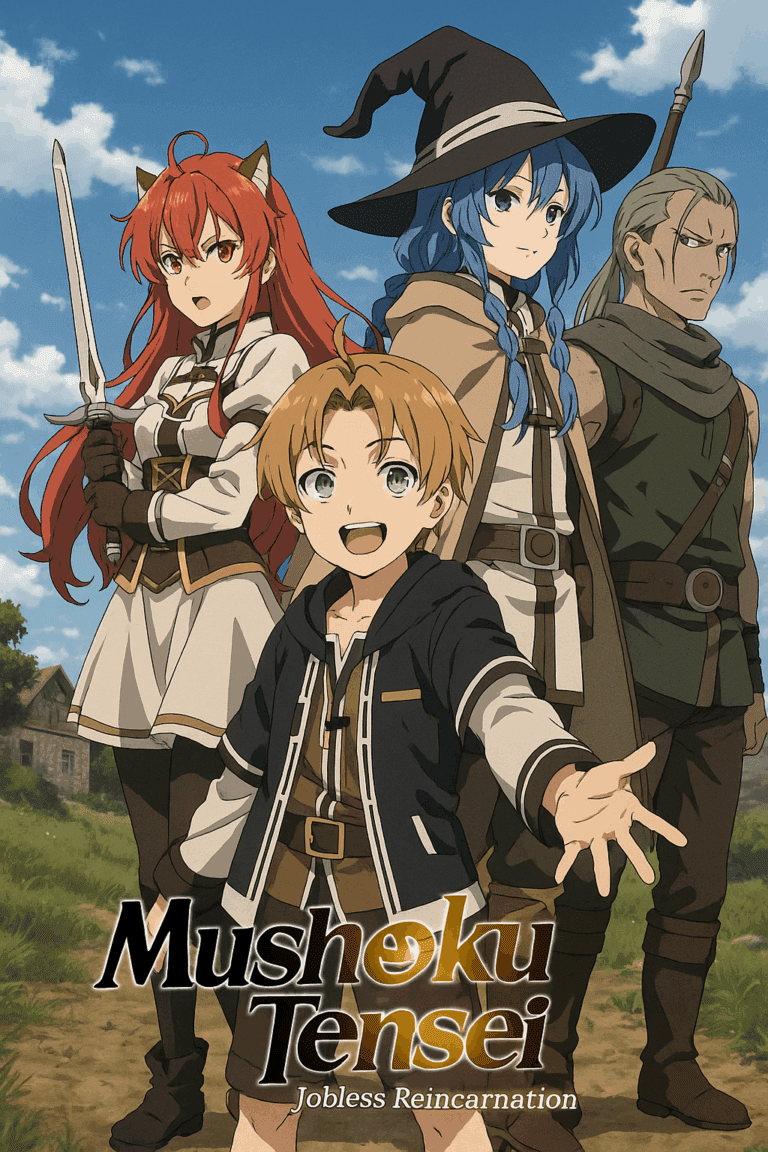




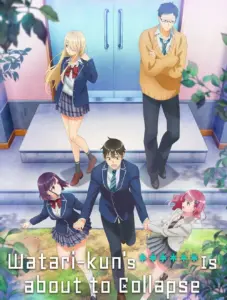
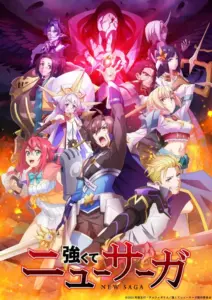
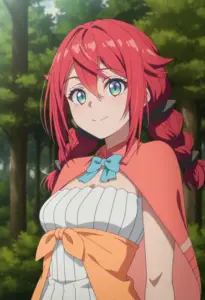

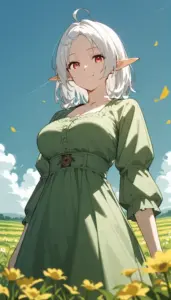
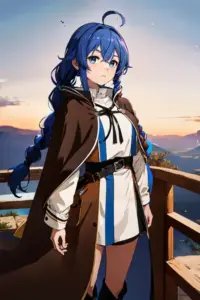
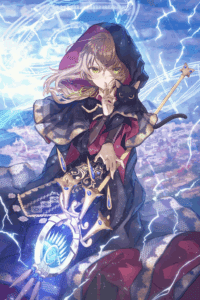

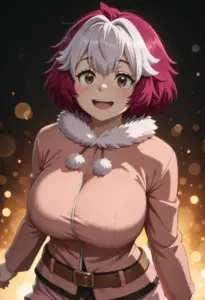

Saitaman - October 10, 2025 - Upvote (0) / Downvote
Brilliant review. Can't wait for the next season...